QuestionMy husband and I have had two toy poodles for the past 5 years (male 6 years old, female 12 years old). 18 mo. ago we had a human baby boy. Along with the new baby my husband took a job out of town and was only home a few days a month. Given all these changes our poodles receive far less attention. They have started peeing and pooping in the house, even if I take them out every couple of hours (they get lots of affirmation and treats when they do their "business"). It seems that they go in the house whenever I leave them alone in a room. It is not practical for me to keep them with me at all times and they bark constantly if I put them in their own room with a baby gate (plus this doesn't seem like a very good quality of life). I've also tried putting diapers on them but this is a fairly inconvenient option. We are at our wits end now that our baby is mobile and able to find "accidents" on the carpet and couch. I've read a number of books but they all seem to focus on puppies. Any ideas?
AnswerI think this has much more to do with rank and status than housebreaking. You have made their life miserable, and they have found an effective way to make yours miserable. Buy a couple of small plastic crates just big enough for them to stretch out in. Anytime you are not free to watch them, pop them in the crate. If they foul the bedding, take it away. The crates can easily be hosed out. It will give them more freedom if you can use doors or gates to confine them in the room where you are. Some people even leash the dog to themselves.
When they are out of the crate, keep a close eye on them for the first sign of fouling the house. Sniffing around the area of a previous offense, is a big clue. Catching them in the act calls for stronger corrections than the
otherwise effective "Bad dog!". When one misbehaves, throw it on its back, and
growl "Bad dog!" right in its face. Hold it down until it lifts one back leg
to show submission. You can pick him up with your hands behind his front
shoulders and hold him up with his back to you. Keeping him far enough away
to keep his head from smashing into your face, hold him until he stops
struggling and relaxes. Others like the squirt bottle. Fill it with water
and a little vinegar or lemon juice. Give it a squirt in the face as soon as
it misbehaves. Dogs hate that.
You also need to take over your rightful place as top dog. The dogs see all the people and dogs in the household as a pack with each having their own rank in the pack and a top dog. Life is much easier if the 2 legged pack members
outrank the 4 legged ones. You can learn to play the role of top dog by
reading some books or going to a good obedience class. A good obedience class
or book is about you being top dog, not about rewarding standard commands with
a treat. Start at http://www.dogsbestfriend.com/ Many smaller dogs do not get the discipline and leadership they need and tend to assume they are in charge. It will be difficult proving otherwise now at their age.
There will be still be offenses. From my puppy info:
Clean up accidents promptly. I mostly keep the little
puppies out of the carpeted rooms. Still I need the can of carpet foam
sometimes. First blot up all the urine you can with a dry towel. Keep moving
it and stepping on it until a fresh area stays dry. A couple big putty knives
work well on bowel movements. Just slide one under it while holding it with
the other. This gets it up with a minimum of pushing it down into the carpet.
This works with even relatively soft ones, vomit, dirt from over turned house
plants, or anything else from solids to thick liquids. Finish up with a good
shot of carpet foam. Note, do not let the puppy lick up the carpet foam.
Once the dog is reliably housebroken, your carpet may need a good steam cleaning.
Many people strongly strongly push cleaning up all evidence of past accidents. I am slower to suggest that. Dogs will return to the same spot if they can find it. When you see one sniffing the spot, that is your clue to run it out.

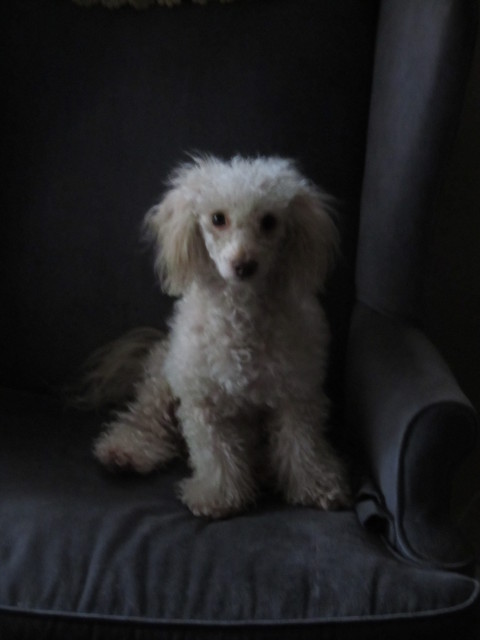 Poodle short hair on his head
Question
Picasso 18 months
My 18 month old rescued pood
Poodle short hair on his head
Question
Picasso 18 months
My 18 month old rescued pood
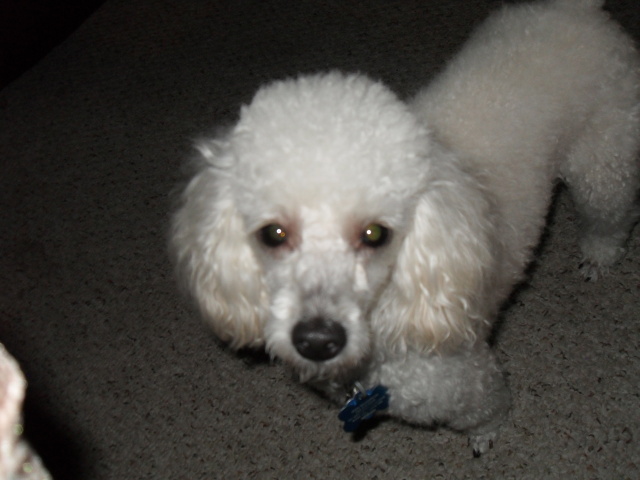 2year old male poodle want to stud
Question
Moseley
I have a white male 2year old reg toy
2year old male poodle want to stud
Question
Moseley
I have a white male 2year old reg toy
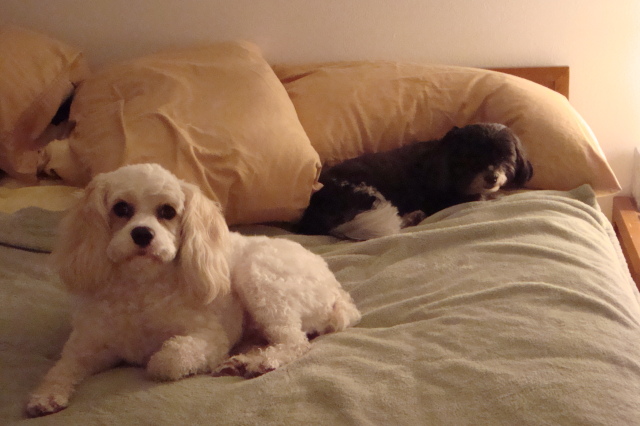 cavapoo
Questionshabby
QUESTION: Our cavapoo is 2 years
cavapoo
Questionshabby
QUESTION: Our cavapoo is 2 years
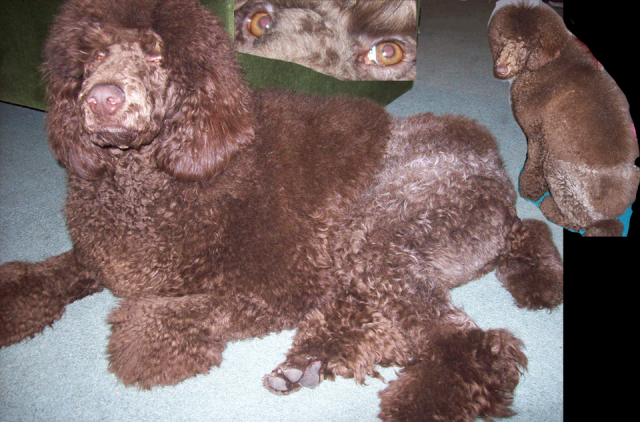 baldspot/color
QuestionQUESTION: I have a female spayed 8 month old br
baldspot/color
QuestionQUESTION: I have a female spayed 8 month old br
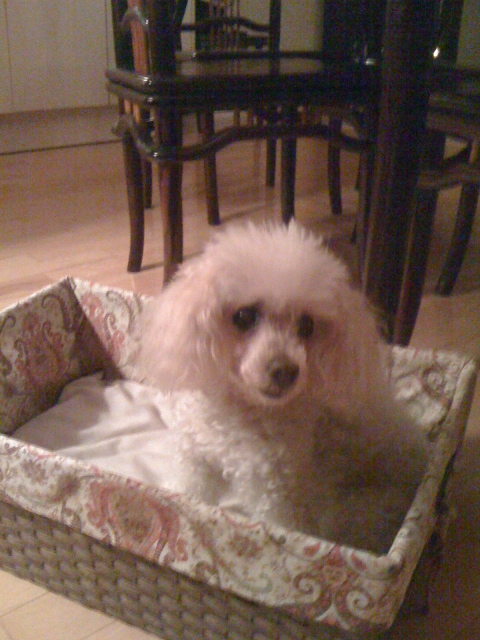 17 yr old Toy poodle rescue
Question
Pax
We resecued a pair of poodles at 1
17 yr old Toy poodle rescue
Question
Pax
We resecued a pair of poodles at 1